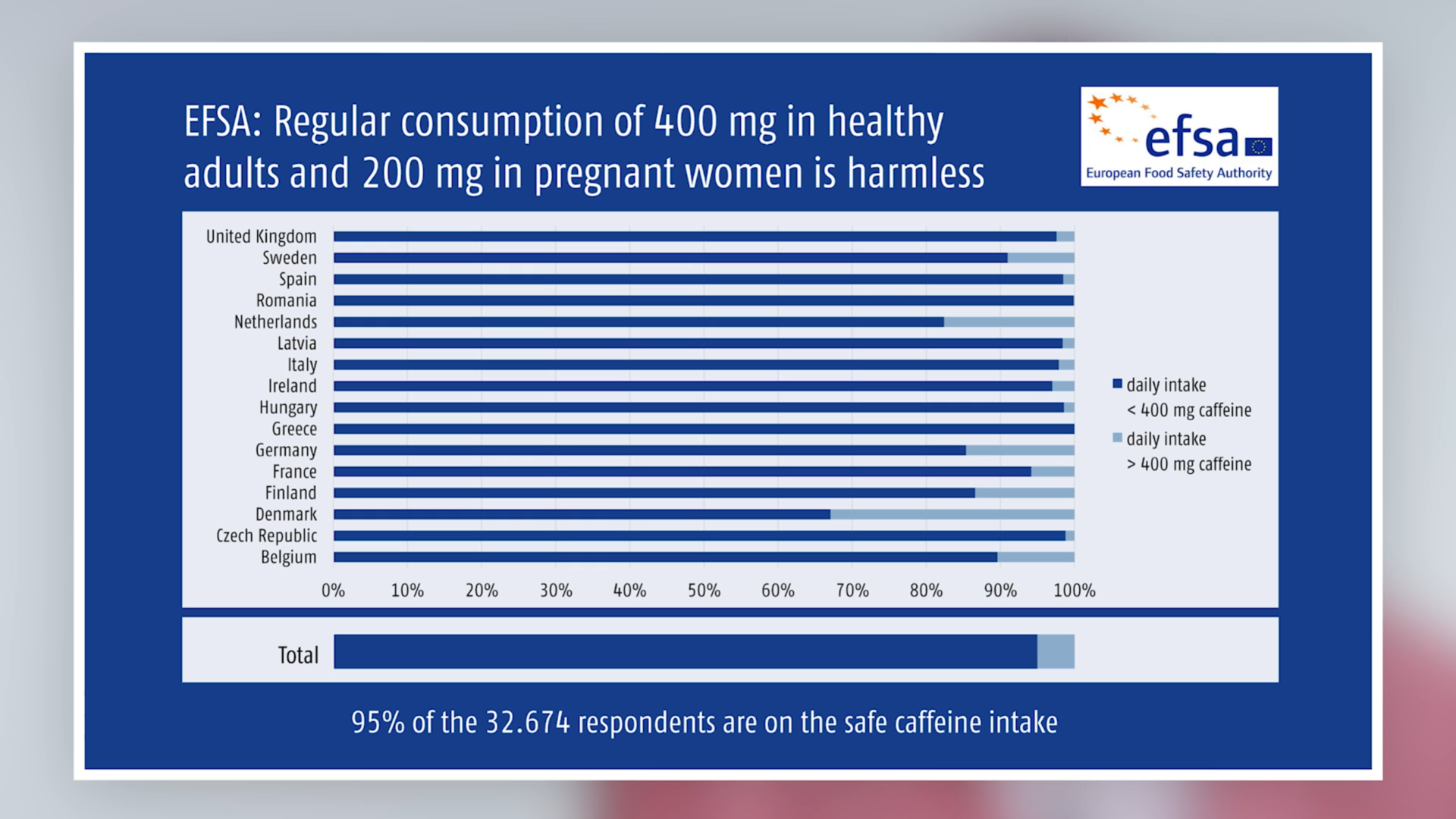Whether a cup of coffee makes it difficult to fall asleep – or the enjoyment from drinking coffee actually predisposes sleep – is the subject of lively debate in friendly get-togethers. However, an objective answer is needed to the interesting question of whether taking a caffeine-containing analgesic impairs sleep quality.
 Global
GlobalDo caffeine-containing combination analgesics cause sleepless nights?
Caffeine – principally in the form of invigorating drinks such as coffee, tea or caffeine-containing soft drinks – is regularly consumed by a large part of the population. It is the most frequently used central stimulant throughout the world. A multitude of positive effects have been ascribed to caffeine. The energising effects – such as increased alertness and improved ability to concentrate – hold a particular attraction. This action is based on competitive inhibition of adenosine receptors in the CNS. When adenosine binds to a receptor, an inhibitory signal is sent to the cells. Caffeine displaces the chemically similar modulator adenosine from the receptor without triggering the inhibitory signal, so the cells remain activated.
What are the effects of caffeine on sleep?
After drinking just one or two cups of coffee, people report difficulties in being able to fall asleep. According to others – particularly older people – on the contrary it’s the best way to get to sleep! What’s the truth in this observation? The caffeine content of prepared coffee varies enormously, so it is interesting to examine whether the observed effect can be assigned to the active substance caffeine.
The European Food Safety Authority (EFSA) has stated that a single dose of 100 mg caffeine, equivalent to approx. 1.4 mg/kg body weight in an adult weighing 70 kg, increases sleep latency and can shorten sleep duration if taken shortly before going to bed [1]. However, studies have shown that the effects of caffeine on wakefulness are overestimated. A study in sportswomen showed that the ingestion of 6 mg per kg body weight, corresponding to 420 mg caffeine, before going to bed, admittedly delays sleep onset by a few minutes, but cannot prevent it. The next morning, the subjects had slept just as well as the sportswomen in the placebo arm. The Jackson Heart Sleep Study in 785 subjects showed that the evening intake of caffeine-containing drinks had no effect on sleep parameters. In contrast, the evening consumption of alcohol and nicotine was associated with a lower sleep efficiency [3].
Does caffeine as co-analgesic alter sleep quality?
Two studies in which ibuprofen was used in a combination with 100 mg caffeine showed virtually no effects on the sleep quality of the subjects. The study published in the European Journal of Pain investigated the pain-relieving effect of ibuprofen compared with a combination of 400 mg ibuprofen and 100 mg caffeine three times daily for five days. About 70% of patients in both groups assessed tolerability as “very good” or “excellent”. Adverse events were rare and generally mild or moderate in all treatment groups. 282 patients received the fixed combination of ibuprofen and caffeine, and fewer than 5% reported sleep problems [4]. In the second study that was published in the Journal of Pain Research, 256 subjects also received a fixed combination of 400 mg ibuprofen and 100 mg caffeine three times daily. Here only 2 participants (0.8%) reported sleep disorders – precisely as many as in the placebo arm [2].
Summary
If, when seeking advice in the pharmacy, patients express concern that they might have difficulties falling asleep after taking a caffeine-containing analgesic, they can be reassured. Of 538 subjects from the two above-mentioned studies who received a fixed combination of ibuprofen 400 mg and caffeine 100 mg, fewer than one in 50 experienced treatment-induced sleep problems. If the quality of sleep is reduced following the consumption of coffee or caffeine-containing drinks, then that could also be caused by one of the numerous other ingredients.
Literature
- EFSA Panel on Dietetic Products, Nutrition and Allergies (NDA). Scientific Opinion on the safety of caffeine. European Food Safety Authority, Parma, Italy, 2015.
- Predel HG, Ebel-Bitoun C, Lange R, Weiter T. A randomized, placebo- and active-controlled, multicountry, multi-center parallel group trial to evaluate the efficacy and safety of a fixed-dose combination of 400 mg ibuprofen and 100mg caffeine compared with ibuprofen 400 mg and placebo in patients with acute lower back or neck pain. Journal of Pain Research 12. 2019;2771–2783.
- Spadola CE, Guo N, Johnson DA, Sofer T, Bertisch SM, Jackson CL, Rueschmann M, Mittleman MA, Wilson JG, Redline S. Evening intake of alcohol, caffeine, and nicotine: night-to-night associations with sleep duration and continuity among African Americans in the Jackson Heart Sleep Study. Sleep, Volume 42, 2019. https://doi.org/10.1093/sleep/zsz136.
- Weiser T, Richter E, Hegewisch A, Muse DD, Lange R. Efficacy and safety of a fixed-dose combination of ibuprofen and caffeine in the management of moderate to severe dental pain after third molar extraction. European Journal of Pain 22. 2018;28–38.
Conflict of interest: T. Weiser is an employee of Sanofi.
Disclosure: Medical writing and publication funded by Sanofi Aventis Deutschland GmbH.

